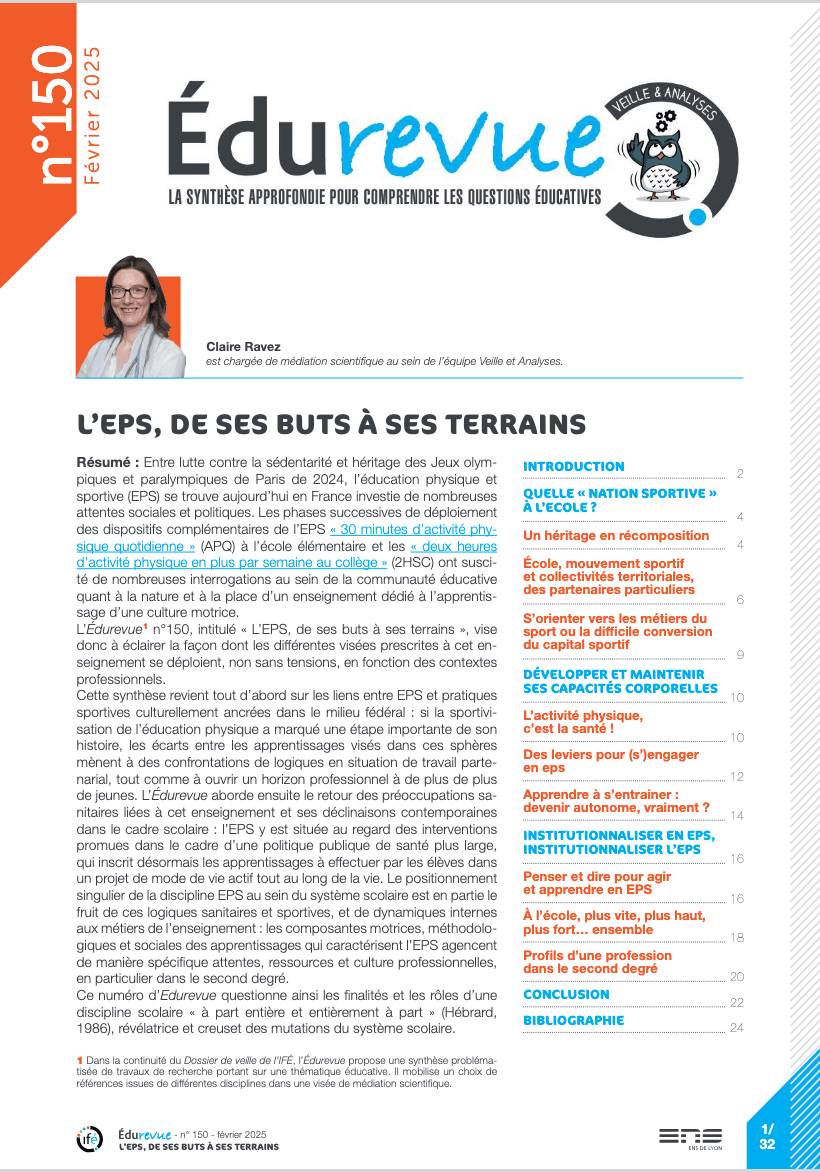Frais d'inscription dans l'enseignement supérieur : enjeux, limites et perspectives.
Auteur(s) : MOULIN Léonard
Date de soutenance : 2014
Thèse délivrée par : Université Paris 13
Section(s) CNU : section 05 : Sciences économiques
Sous la direction de : David FLACHER & Hugo HARARI-KERMADEC
Jury de thèse : Aghion, Philippe ; Giret, Jean-François ; Lesnard, Laurent ; Zajdela, Hélène ; Flacher, David ; Harari-Kermadec, Hugo
"Cette thèse étudie les effets des frais d'inscription sur les étudiants dans l'enseignement supérieur. Dans la première partie, nous menons une analyse théorique des motivations aux frais d'inscription. Le chapitre 1 dresse une revue critique et pluridisciplinaire de la littérature et dégage trois motivations à leur introduction ou à leur relèvement (l'effet redistributif, l'effet incitatif et l'effet contributif) dont nous contestons la validité. Le chapitre 2 s'interroge sur les conditions théoriques rendant l'instauration de frais d'inscription désirable, alors même qu'existent des classes sociales aux comportements distincts. Nous montrons, en utilisant les développements récents de l'économie comportementale, que la mise en oeuvre de frais progressifs, si elle peut constituer une solution équitable d'un point de vue purement théorique, soulève d'autres problèmes. La deuxième partie de cette thèse s'intéresse aux expériences nationales de mise en place de frais d'inscription. Le chapitre 3 souligne le caractère contrasté des résultats présentés dans la littérature avant de dresser une typologie des contextes institutionnels. Deux régimes nous apparaissent ainsi cohérent même si leurs fondements sont radicalement différents (le régime " libéral " et le régime " social-démocrate "), tandis que le régime " conservateur " français nous apparait difficilement soutenable. Les trois chapitres suivants proposent la première étude sur les effets de l'introduction de frais d'inscription dans le contexte universitaire français. Nous commençons par regarder deux aspects de l'efficience liés à l'introduction de frais d'inscription : (i) un effet de sélection et (ii) un effet incitatif à l'effort. Dans le chapitre 4, nous montrons ainsi que l'introduction de frais d'inscription à Dauphine renforce les effets ségrégatifs et inégalitaires. Dans le chapitre 5, nous prolongeons cette approche en montrant, contrairement aux résultats développés dans la littérature théorique, que les frais d'inscription n'accroissent pas le niveau de réussite et donc les incitations à l'effort des étudiants à Dauphine. Enfin, dans le chapitre 6, nous discutons de la possible généralisation des résultats précédents en commençant par analyser la nature particulière du public de l'Université Paris 9 Dauphine au sein du paysage universitaire français. Les limites théoriques à l'instauration de frais d'inscription (partie I), confirmées empiriquement (partie II), nous conduisent, dans la dernière partie de cette thèse, à revenir sur la typologie construite dans le chapitre 3 en discutant de la manière dont le régime institutionnel " social-démocrate " pourrait contribuer à répondre aux objectifs d'équité, d'efficience et de besoins de financement des universités dans le cas français. Nous introduisons pour cela les fondements de ce que nous appelons une éducation par " répartition " et définissons les conditions de son équité, de son efficience et de sa capacité à financer l'enseignement supérieur."
Abstract
"This thesis investigates the effects of tuition fees on students in french higher education . In the first part, we conduct a theoretical analysis of the motivations for the tuition fees. Chapter 1 provides a critical and multidisciplinary review of literature and identifies three motivations for the introduction or increase of tuition fees (the redistributive effect, the incentive effect and the contributory effect) from wich we question the validity. Chapter 2 examines the theoretical conditions that make the establishment of tuition fees desirable, even that exist different social classes with distinct behaviors. We show, using recent developments in behavioral economics, that the implementation of decreasing tuition fees, if it can be a fair solution of a purely theoretical point of view, raises other problems. The second part of this thesis focuses on national experiences in implementing tuition fees. Chapter 3 highlights the contrasted nature of the results presented in the literature review before to provide a typology of institutional contexts. Two regimes appear consistent even if their fundamentals are radically different (the 'liberal'' and 'social democratic" welfare states), while the "conservative" French regime appears difficult to sustain. The following three chapters provide the first study on the effects of the introduction of tuition fees in the French university context. We begin by looking two aspects of efficiency related to the introduction of tuition fees : (i) a selection effect and (ii) an incentive to effort effect. In Chapter 4, we show that the introduction of tuition fees in University Paris 9 Dauphine strengthens the effets of social segregation. In Chapter 5, we extend this approach by showing, contrary to the results developed in the theoretical literature, that tuition fees do not increase the level of success and therefore the incentives to effort for students. Finally, in Chapter 6, we discuss possible generalization of previous results beginning with analyzing the specific nature of the students from the University Paris Dauphine 9 in the French academic landscape. The theoretical limits to the introduction of tuition fees (Part I), confirmed empirically (Part II), lead us, in the last part of this thesis, to return to the typology constructed in Chapter 3 by discussing how "social democratic" institutional regime could help to ensure equity, efficiency and funding needs of universities in the French context. To do that, we introduce the foundations of what we call a ''contributory scheme'' and we define the terms of its fairness, efficiency and its ability to fund higher education."
Thèse lauréate du Prix Eicher 2017
URL : https://tel.archives-ouvertes.fr/tel-01016251v2/document
mot(s) clé(s) : économie de l'éducation, enseignement supérieur, inégalités












